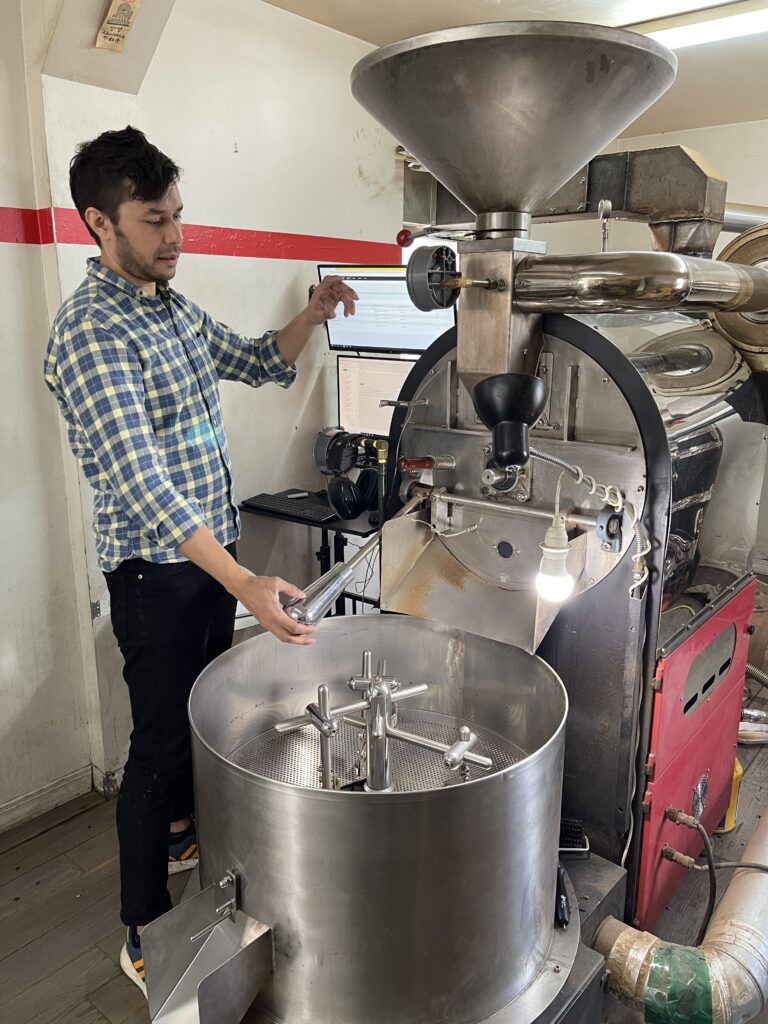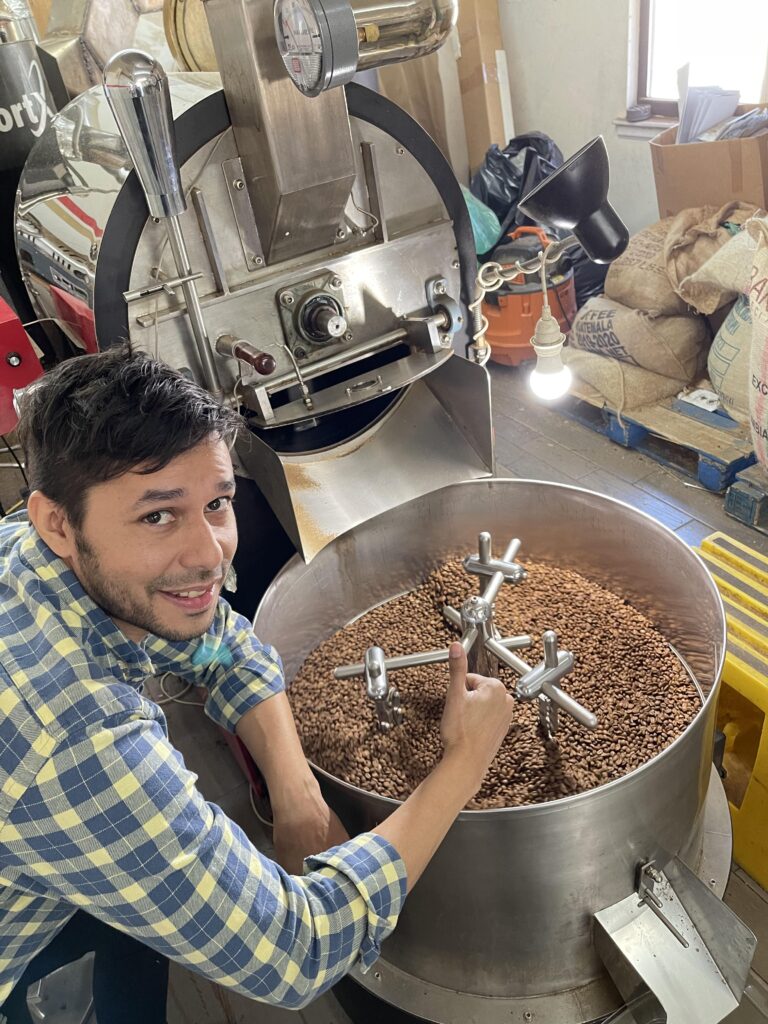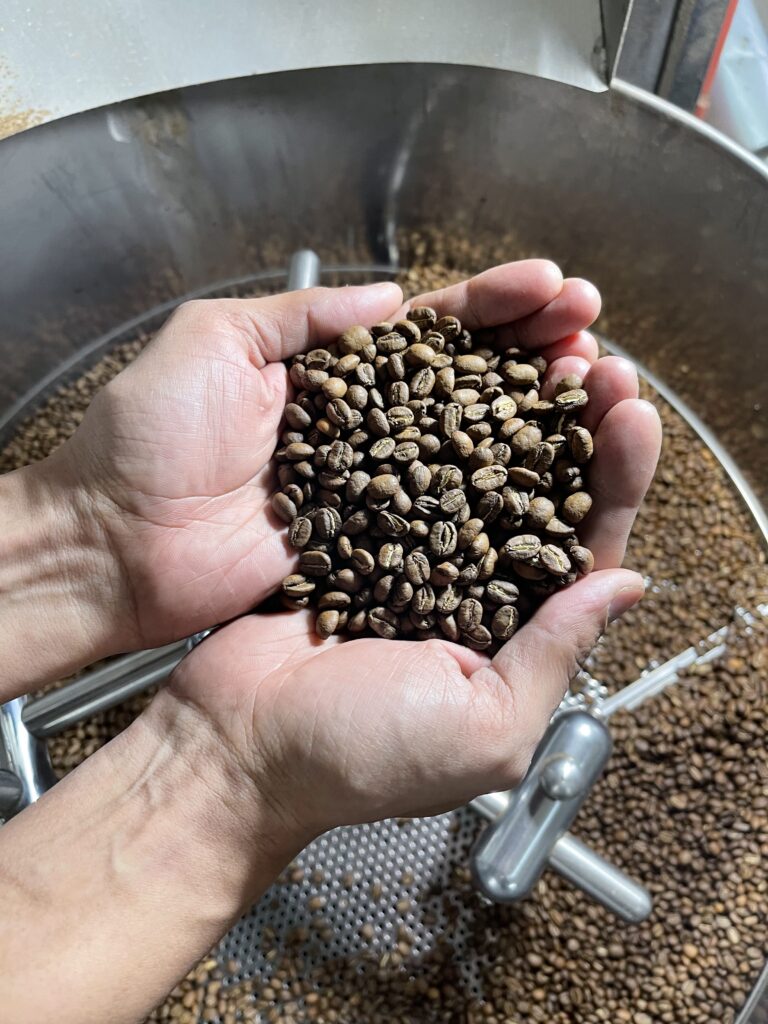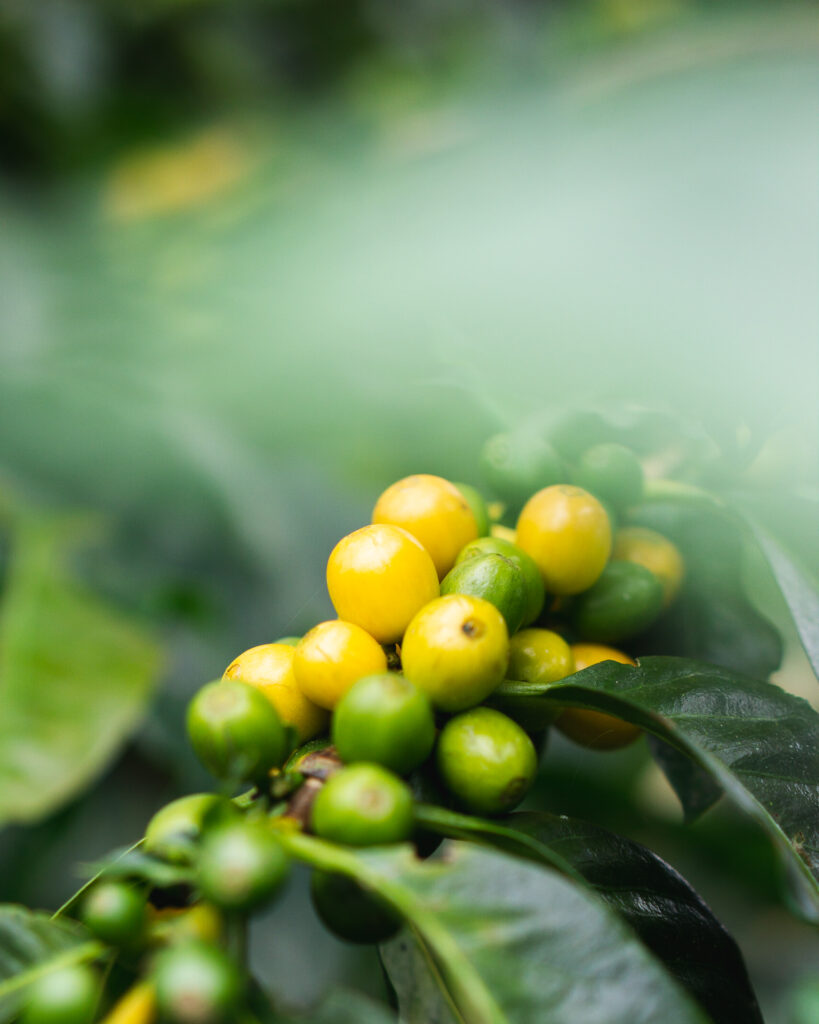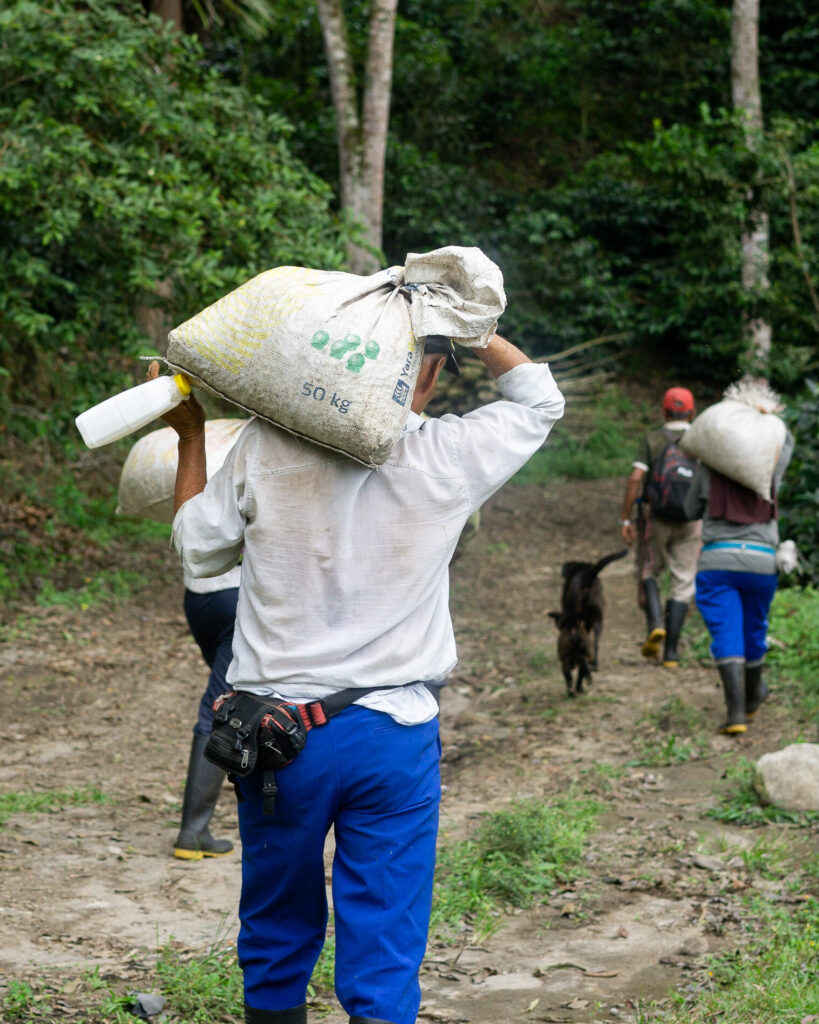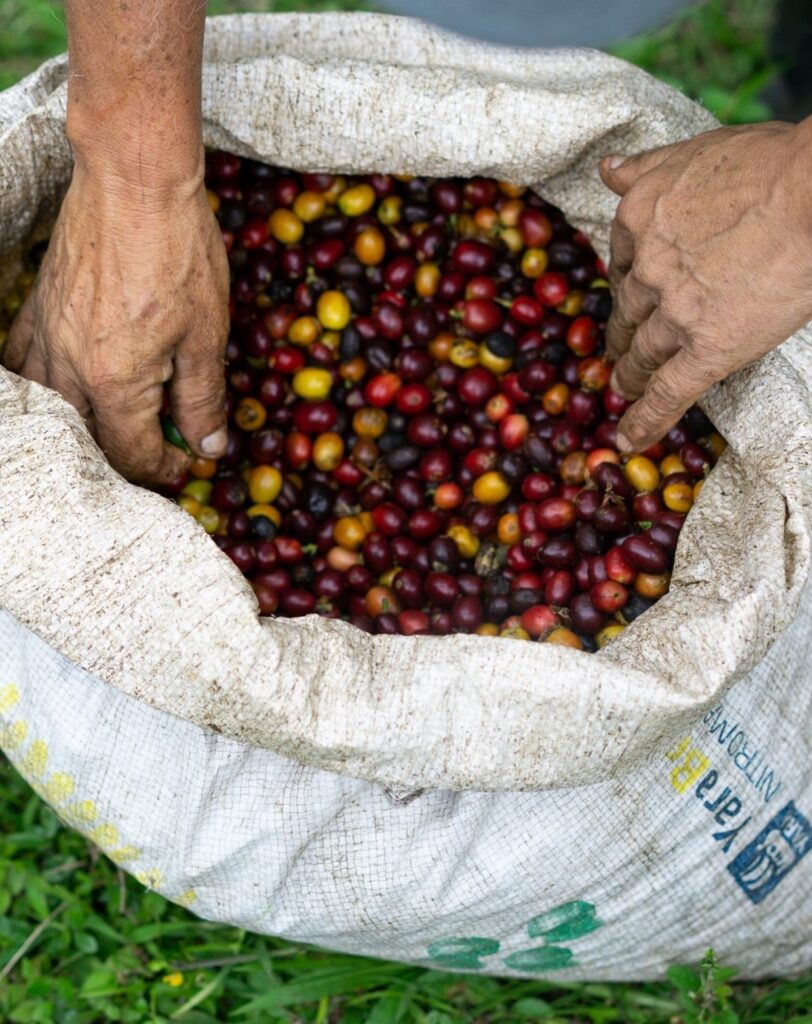Origin. Transparency. Connectivity.
Orlando Arroyo Cardenas and Try Just Coffee Revolutionize the Coffee Industry and the Experience
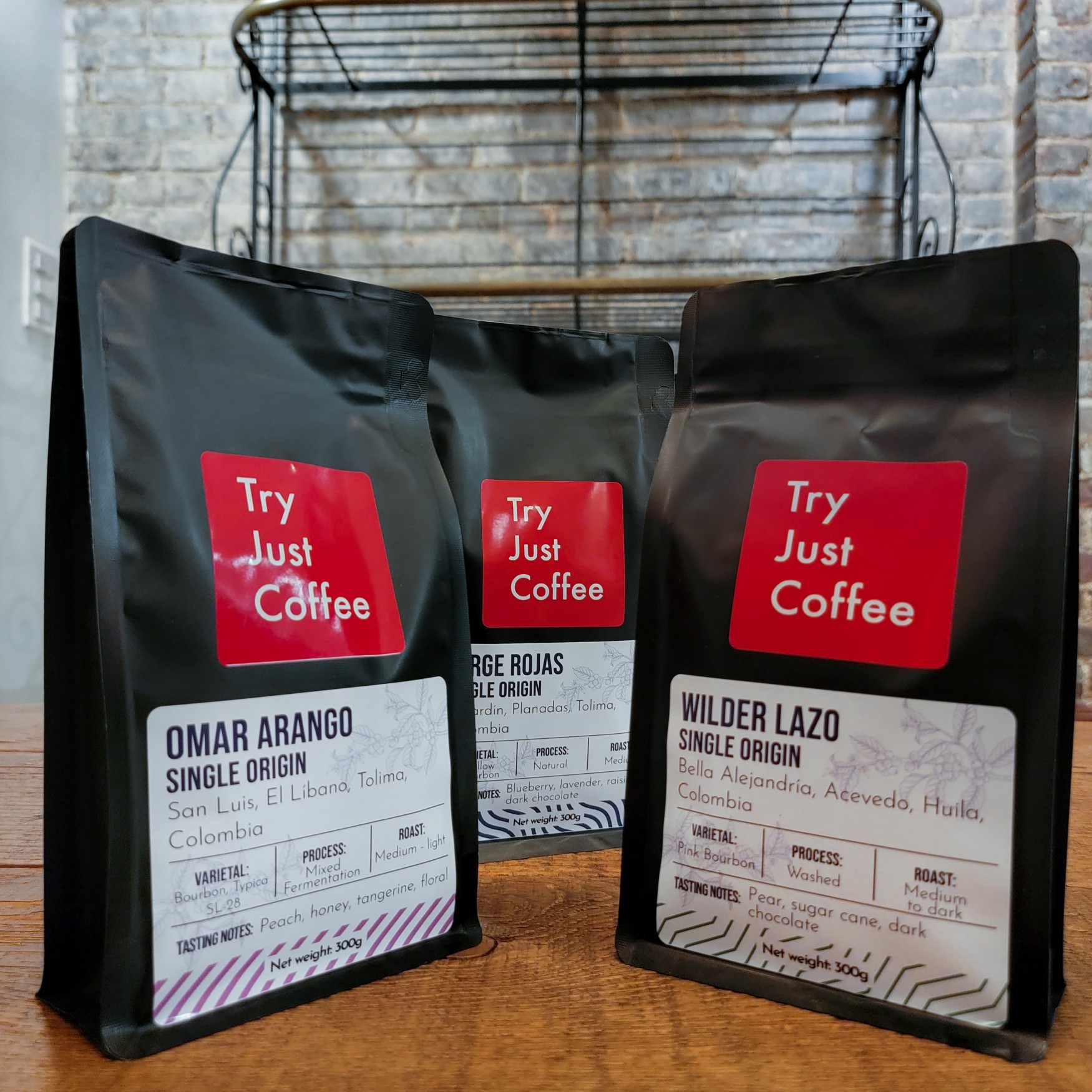
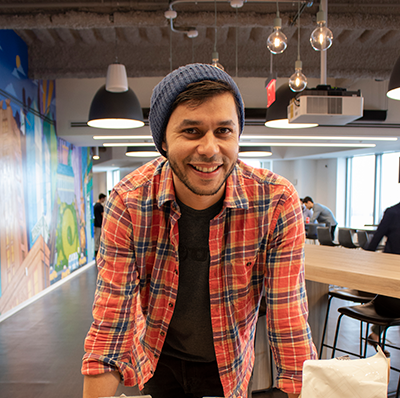
Try Just Coffee founder
On the whole, we do not know much about where the things we love, and buy, come from.
When the origin story (fact or fictionalized) can add to a product’s or an experience’s marketing success, brands will include it in the campaigns, or at least on the website’s About page. When the origin story is complex, everchanging, and includes information that may not reflect well on the target audience and/or the makers, it may be brushed under the rug and it’s not shared, let along spotlighted.
What we consume, wear, and drive can become so embedded in our day to day lives that we choose to know where they came from, why they were made, and how they were made. It is not lost on me that a thing we know very little about – coffee – is as routine and crucial to people around the world as are brushing and flossing our teeth.
And while its existence is not to teach us where our cuppa comes from, Try Just Coffee, founded and run by Orlando Arroyo Cardenas, does that while simultaneously redefining how coffee is not only sold, but how coffee – both the beans that are grown and the roasts we brew, drip, and press – comes to life. We spoke earlier this month in New York City.
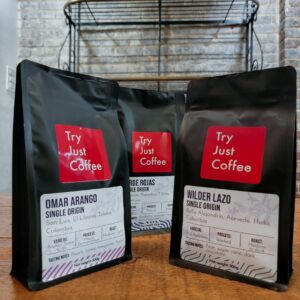
Try Just Coffee bridges the gap between the coffee farmer and the coffee drinker. With farm to table and nose to tail, people can now know the origins of what’s on their plate. Anyone who has participated in an Outstanding in the Field dinner knows how food is somehow more delicious when you see and speak with the people who planted, grew, harvested, and cooked it. Orlando and the farmers who comprise Travesía Coffee Hub present an opportunity for people who drink – and love – coffee to experience transparency and traceability.
In our conversation about the pairing of the maker and the vendor, Orlando was passionate (understatement) when he described the points of difference between Try Just Coffee and most of the national vendors and distributors: “You’re actually able to know where the beans came from, how much you’re paying wholesale as a vendor, you know how much the grower pays their employees, the practices they use on their farms regarding sustainability, environmental respect, and the actual processes used to ensure coffee quality, including what happens between harvesting the coffee cherries, drying the cherries, and storing the cherries.”
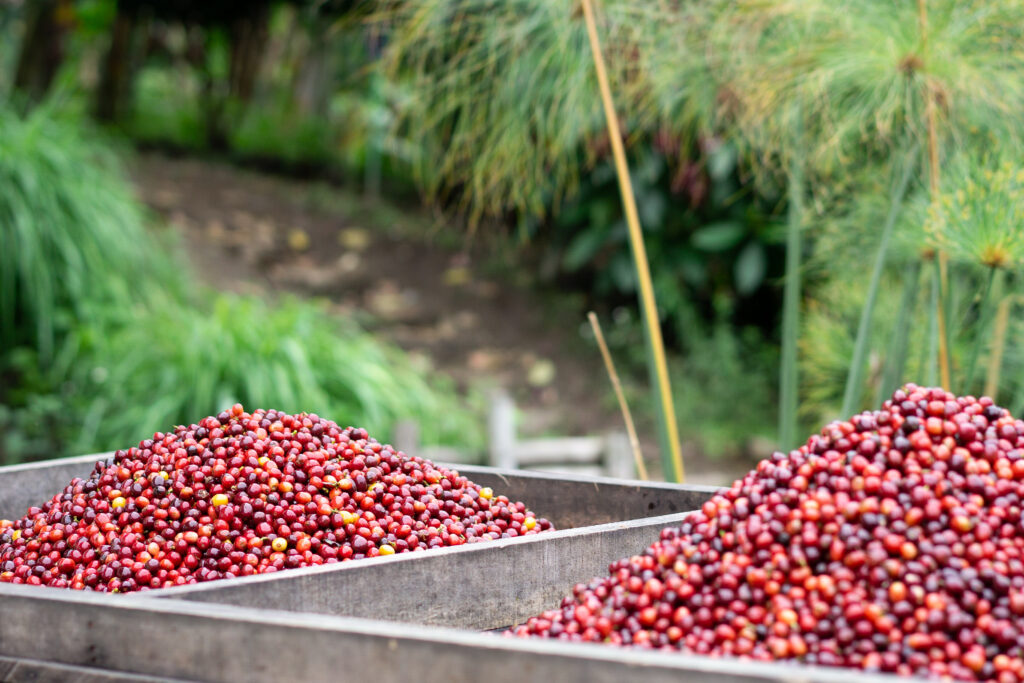
(photo credit: Travesía Coffee Hub)
Before we go further, I’ll share the useful lesson Orlando taught me. The coffee cherry is the fruit of the coffee plant. When completely ripe, they are red, like cherries (or cranberries). Inside each cherry are two green seeds, which are used to make coffee. What we call coffee beans are actually seeds, and the seeds come from a fruit known as coffee cherry. Also, the tree where coffee cherries grow is called Coffea Arabica, which is a shrub or a small tree.
It may surprise you to know the third largest coffee producer (following Brazil and Vietnam) began long before the Juan Valdez character appeared on screen and in print. As Orlando stated, “Coffee was first introduced to Colombia by Jesuit priests who arrived with Spanish settlers in the 17th Century.” The first crops were planted in the northeast’s mountainous land. Not only did this activity spread throughout the country, as family farms made coffee growing an income source, this was a spiritual act: “Priests told people that in order to redeem themselves, they needed to plant coffee trees. The more they planted, the more they would be redeemed.”
Redemption was rewarded with revenue: by the end of the 19th Century, Colombia was one of the world’s largest coffee exporters.
History and commerce aside, I asked Orlando “Why Colombia?” I was aware how Colombia is rightfully known as one of the world’s few sources of exceptional coffee, the country’s primary revenue is the exportation of coffee, and he had grown up there (born in Barranquilla, moved to Bogotá at age 10), there had to be more. There was more.
Orlando learned, via life in Colombia and the United State, how the coffee industry had opportunity concerning production and distribution. He created a business model that recognized and highlighted the small producers, whose smaller batch, passionately harvested beans would have a positive impact on the consumer. From working directly with growers, to roasting (which Orlando does at Regalia Roasting Collective in Long Island City, New York), to distributing via sales to the end consumer, fairness and justice imbue every step and every sale. “This process,” Orlando told me, “Adds value to both ends of the chain.” I gently corrected him: it adds value to all parts of the chain.
From the jump, Orlando “wanted to dedicate [his] time to a cause that could positively impact the world around me; starting with [his] roots felt like a good place to start, and sharing with coffee growers in Colombia opportunities and options that exist, and also provide access to these opportunities.” His sharing truth continued: “When you are born in a place (any), and never experience another place or culture, your bubble becomes your entire reality. It is only when you experience other approaches to life, other customs, other points of view, that your perceptions broaden drastically. Only then, you get to understand that many of the concepts we use as foundations for our lives are only subjective, such as ‘good and bad,’ ‘right and wrong,’ ‘acceptable and non-acceptable,’ and much deeper ones such as ‘possible and impossible.’ And all that defines our perception of reality and frames how we interact with it.”
Possible. Impossible.
As someone who failed the Bar Exam and survived a Traumatic Brain Injury, I know a little bit about the impossible and the possible. Their duality isn’t lost on me, and Orlando shared how it exists for coffee farmers. “When you’re in Colombia, you can’t see – as a farmer – how you can transport it to the consumer market in the first world.” I was surprised by his declaration, and asked him how it was that way today, in the world’s third biggest coffee exporter. Things may have changed, and not that much. Orlando said, “Even today, when you ask a coffee farmer, ‘What’s the best scenario to export and sell and make consumable for the public the coffee you are growing and producing?’ they will tell you they don’t know, because they can’t see what else they harvest. So, they sell the beans – as they are – to a co-operative and to a trader.”
There is a beginning, and there is an end. Grow and sell. Buy and sell. Obviously, there are several steps within the start and the stop, and in traditional, conventional coffee sales, it’s exclusively a buy/sell, or sell/buy, relationship. There’s no community here, only commerce. As modern as that may be (hello, Amazon), it’s not particularly human, or personal. And coffee, like chocolate, pastry, and spirits, is personal.
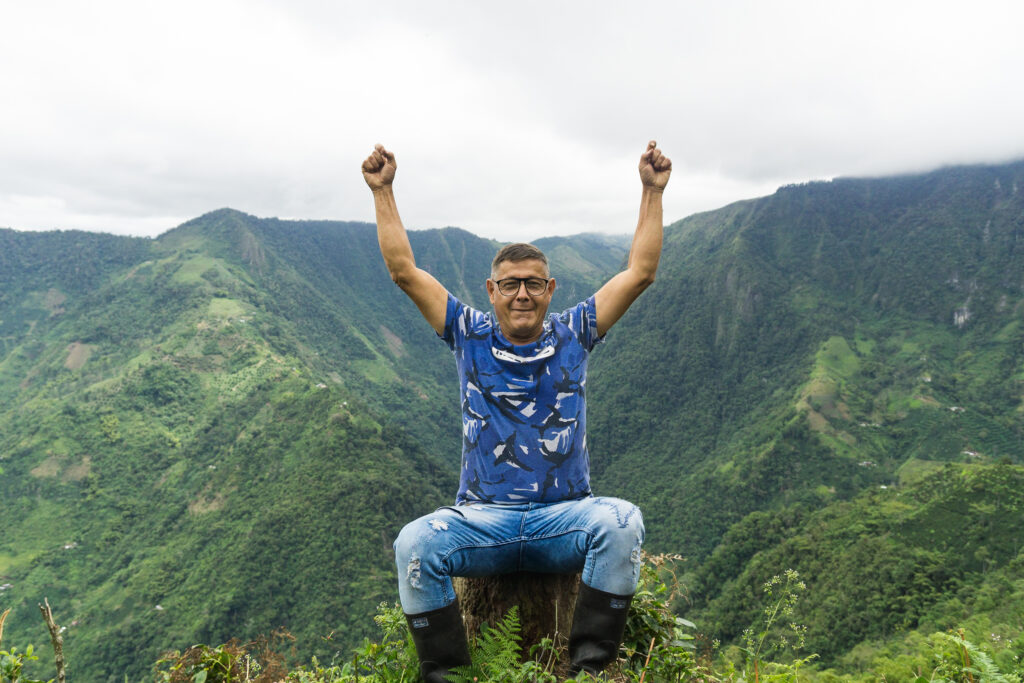
(photo credit: Travesía Coffee Hub)
Another thing that’s personal is when a business’s operations support and sustain the community and the environment, literally and theoretically. Try Just Coffee buys from several farmers, including Omar Arango. On San Luis, his family’s farm for over 25 years, Omar grows various species of Certified Organic Coffee, with the passion for and love of growing being passed from generation to generation. Located in El Líbano, in Tolima, Colombia, Omar’s farm rests in a valley near Nevado Del Ruiz, one of Colombia’s snowcapped mountains and a source of natural water and harbor for countless varieties of fauna. Omar’s 50 hectares utilizes two micro-climates – warm forest and humid forest – in various altitudes which offer different conditions for the coffee shrubs and trees. Besides yielding products with personality and unique characteristics, which show up in each cup of brewed coffee, Omar and his family are growing coffee with the surrounding nature and supporting the ever changing and truly fragile climates.
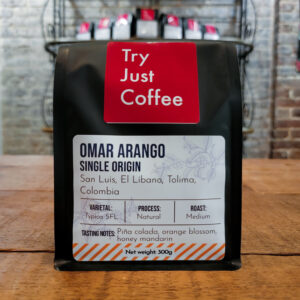
(photo credit: Travesía Coffee Hub)
Today, we’re in the second anniversary of COVID-19’s impact on the world. Between climate crises and supply chain delays, farmers around the world have experienced harvest declines. It’s no different in Colombia, where smaller coffee farms are labor intensive, due to being nonmechanized and location. As ideal as the Colombian terrain is to grow coffee plants, the steep hills are difficult to access and can only be accessed on foot. In this way, Colombia is opposite of Brazil, where the flatlands allow for bigger coffee shrubs that yield more and different strains of coffee. Also, mechanical equipment can be used to harvest and extract in Brazil.
While it’s always a risk for someone to start a business, particularly when they’re on their own, fortune favors the brave. I asked Orlando, during year two of the ‘rona, what moved him to begin Try Just Coffee. I was not surprised to learn that personal experience prompted him to start a business so heart-based and spirit based. “Besides the obvious consequences of the pandemic – most people working from home and the increase in the home-barista trend, leading to a higher demand for coffee beans to be delivered to the home – six years ago, when I took a full dive into the coffee industry I was exposed to growers and farmers in Colombia. I witnessed how little they were paid for the coffee they sell. I lived in New York City and saw how much people were paying for coffee. And when I saw the difference between the grower and the consumer, I realized I wanted to know what happens between the beginning and the end.”
Orlando dedicated himself to developing a business model that would allow him “to spark a change for the better, and serve as testimony to my son that things can change for the better. Also, one person can start that change when mixing hard work with determination, commitment, and patience.”
That still begs the question why now? Orlando was specific when he said, “Timing is everything, and on one hand we have the communications evolution and social media as a platform for connecting people in a way that stories are shared first hand and allowing people to follow worldwide causes.”
Timing is everything indeed, and we spoke about the increased participation and representation of the Latino community in standup comedy with powerful and direct messages. From the recent work of Aida Rodriguez (her acclaimed HBO Max special “Fighting Words”), to “Latin History for Morons” by and starring Bogotá-born John Leguizamo, which inspired several of the actors who would go on to participate in Disney’s “Encanto,” which included the remarkable Lin-Manuel Miranda and sparked the hashtag #representationmatters (https://www.youtube.com/watch?v=wtDM18SdjME).
And in a world where there is no coincidence, only synchronicity (at least, according to this author), in a more niche tone, the winner of the 22nd annual World Barista Championship was Diego Campos, who is from Colombia. Orlando told me, “The interesting fact here is that for the first time in the history of that event, the winner is not only Colombian, but a person from a coffee producing country! That sends a strong message, that I interpreted to mean it was time to bridge the gap between coffee grower and coffee consumer through empowerment, recognition, and most importantly, taking action.”
And that is why Try Just Coffee was created.
As its founder, Orlando applies what founders do, which is everything they have experienced at work and in life: he attended private and public colleges, he earned a degree in Industrial Engineering, his parents divorced, he has a son, he lost a friend due to groups “outside the law,” he worked in corporate America and in a small, family-owned business, he has had roles in production, hospitality, and IT, and his brother Andres introduced him to specialty coffee. With Try Just Coffee, Orlando is building on, and from, these happenings as well as “connecting the dots.”
The dots being connected include the tricky (and necessary) “import, export, distribution, and licensing” while he works with the growers to “move the coffee from the plant to our cup.” Orlando was almost poetic when he described what’s possible in today’s economy: Consumers can use their dollars “to shape industries, and end injustice. The information to make these kinds of decisions is out there, and in our connected world we only need to scratch the surface. There is a whole world behind the cups of coffee we have every morning: people, their lives, and their stories.”
Here’s to connecting with the people responsible for the products.
You can get down like Orlando does the next time you grind beans and make coffee. His favorite albums to play while roasting include Damian Marley’s Welcome to Jamrock, Turn Blue by The Black Keys, In Our Nature by José González, and Newen Afrobeat’s self-titled.
Get your next caffeine fix via Try Just Coffee, the most sustainable and integrity-based retail source, and follow the business, and the movement, on Instagram and Facebook.
Check this out: Orlando is offering 20% off everything in the store for In Step Beauty readers’ first purchase. Access Try Just Coffee via this link and use promo code PROUST20 through April 15, 2022.
Kate Harvie is the Executive Editor and Food & Drink Editor for In Step Beauty. She writes for Localeur, she is the contributing writer for the Universal Hip Hop Museum, and she is the author of a book, Believe It and Behave It: How to Restart, Reset, and Reframe Your Life.

